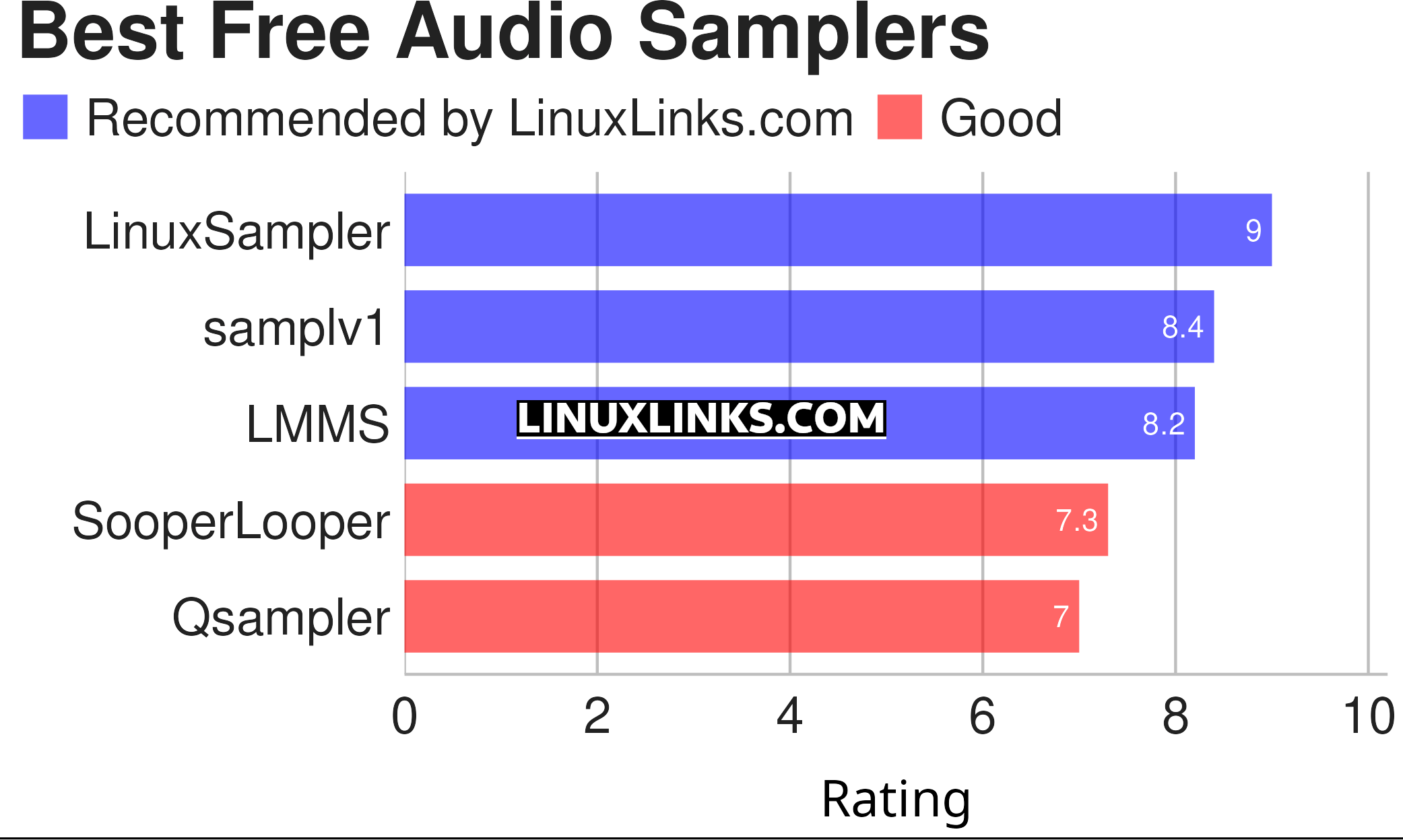Linux is an attractive platform for professional audio production. It is an extremely stable operating system that has good support for audio hardware. Using a Linux machine as the focus of your recording setup opens a world of possibilities for an affordable price.
Software that creates music can often be expensive. The heavyweight Cubase, Apple LogicPro, FL Studio, Adobe Audition, and Sony ACID Pro are all impressive software music production environments. Unfortunately, they cost hundreds of dollars and are released under a proprietary software license. Fortunately, there is a good range of open source software that lets you produce professional quality recordings.
A sampler is an electronic or digital musical instrument which uses sound recordings (or “samples”) of real instrument sounds (e.g., a piano, violin or trumpet), excerpts from recorded songs (e.g., a five-second bass guitar riff from a funk song) or found sounds (e.g., sirens and ocean waves).
Here’s our recommended audio samplers captured in a legendary ratings chart. Only free and open source software are featured here.

Let’s explore the 5 audio samplers. For each title we have compiled its own portal page, a full description with an in-depth analysis of its features, a screenshot of the software in action together with links to relevant resources.
| Audio Samplers | |
|---|---|
| LinuxSampler | Professional grade software audio sampler |
| samplv1 | Old-school polyphonic sampler |
| LMMS | Produce music with your computer |
| SooperLooper | Live looping sampler capable of immediate loop recording, and more |
| Qsampler | Official GUI frontend for LinuxSampler |
This article has been revamped in line with our recent announcement.
 Read our complete collection of recommended free and open source software. Our curated compilation covers all categories of software. Read our complete collection of recommended free and open source software. Our curated compilation covers all categories of software. Spotted a useful open source Linux program not covered on our site? Please let us know by completing this form. The software collection forms part of our series of informative articles for Linux enthusiasts. There are hundreds of in-depth reviews, open source alternatives to proprietary software from large corporations like Google, Microsoft, Apple, Adobe, IBM, Cisco, Oracle, and Autodesk. There are also fun things to try, hardware, free programming books and tutorials, and much more. |
